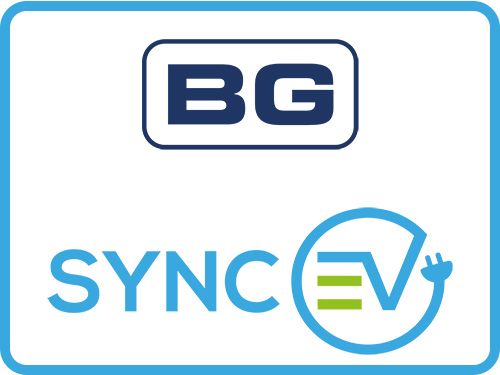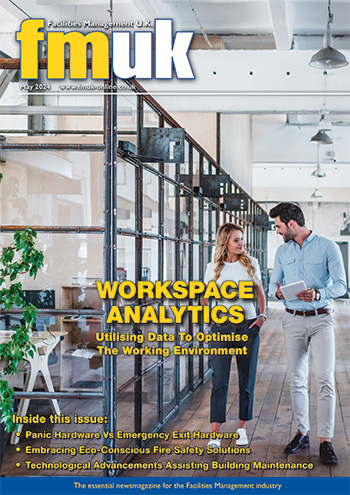The Power Of Proactivity
 Future business energy needs will increasingly be delivered by a wider portfolio of more sustainable, more circular, more decentralised alternatives. In this article Jodie Eaton, CEO of Shell Energy UK Ltd, looks at how a proactive approach can help to build energy resilience and drive organisational efficiencies.
Future business energy needs will increasingly be delivered by a wider portfolio of more sustainable, more circular, more decentralised alternatives. In this article Jodie Eaton, CEO of Shell Energy UK Ltd, looks at how a proactive approach can help to build energy resilience and drive organisational efficiencies.
As facilities managers continue to face market volatility and tightening budgets, corporate energy strategies must go far beyond simply ‘buying better’. Indeed, companies need to focus on tighter management, improving their operational efficiencies and using less. This might mean running intensive processes overnight, rather than during periods when prices are high. It may also mean monitoring and measuring every last kWh used across operations, buildings and transport.
As the most effective long-term solution to manage both cost and carbon, intricate energy management is a clear priority for all facilities managers, especially those at the frontline of energy intensive organisations in sectors such as food manufacturing, heavy industry, wholesale, construction supplies and data centres. However, while reducing energy use is important, so is decarbonising supply and embracing decentralised alternatives.
Avoid Assumptions
Establishing your position on the road to net-zero, setting out a robust transition strategy and defining a methodology to measure your progress are all fundamental parts of achieving the changes needed. Accurate data will help gain support for the big decisions that need to be made at board level.
A lot of businesses think they already know how much energy is used, what it’s used for, where it’s sourced from and what the alternative options are. But, in our experience, when companies dig deeper, they are often surprised by what more can be achieved. Really interrogating energy use can yield quick wins that can immediately deliver savings. As a result, businesses can mitigate against rising costs – with savings ring-fenced for future investment into decarbonisation initiatives.
Developing An Action Plan
While insight is vital for facilities managers to get board-level buy in, a robust roadmap and action plan with milestones and targets is far more important. There is no one size fits all approach, but there are 10 important steps that any business should consider when shaping its transition plans:
- Define your net-zero strategy and update it regularly – be realistic about what you can achieve and by when, what you need to deliver your ambitions and what success looks like. Think about how it plays into wider compliance requirements and the commercial goals of the business
- Keep abreast of the latest energy efficiency technologies as well as innovations to decarbonise operations via renewable gas and electricity supply
- Study renewable tariffs to understand the opportunities available – not just from a decarbonisation perspective, but from a long-term cost efficiency standpoint
- Partner with a reputable energy solutions provider to guide your business through its decarbonisation journey and provide a fresh perspective that will help you to optimise progress and performance
- Understand the technologies and solutions available to help you monitor use and identify waste to achieve your future energy goals quickly and effectively
- Set aside spend for new technologies and on-site energy solutions. Reinvesting savings made through a cost efficiency drive is just one way of increasing the viability of investment plans
- Invest in intelligence and analysis tools to keep ahead of market trends and maximise commercial opportunities
- Champion the role of energy transition and decarbonisation as an important driver of positive change for your business. Engaging staff can help them play a role in reducing waste
- Review your workforce – do you have the right skills and expertise to transition to a more sustainable future, think about who you need on your team
- Stay abreast of the importance of sustainability to your customers – communicate with them regularly and adapt your strategy to align with changing requirements
Navigating The Details
The process of decarbonisation is complex. While many facilities managers will have experience in energy procurement and management, the pace of change means having external guidance and expertise can help to fast-track short-term solutions and enable longer-term effective planning. Collaboration is key.
Our experience tells us that there are common learnings that can benefit all businesses, but also that each company faces unique challenges and can access different opportunities. Working with a partner can be the catalyst for a tailored energy roadmap that makes the most impact for your business.
Facilities managers will play a pivotal role in helping to shape their business’ transition to a net-zero future. Failing to plan or relying on a reactive approach will be a gamble that could leave you beholden to statutory levers and market volatility, instead of fully in control. Energy is no longer simply an overhead, it’s a board-level priority and – like it or not – inextricably linked to commercial success.


























































